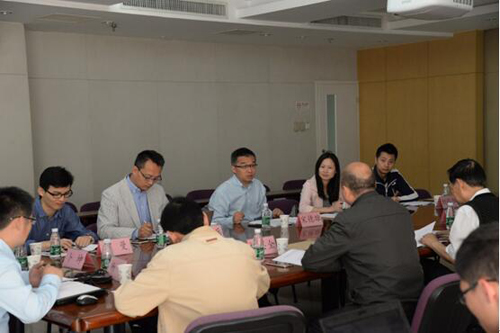Task Launch Meeting for Disaster Risk Reduction Knowledge Service System Held in Beijing
On May 5, 2017 the task launch meeting for the “Disaster Risk Reduction Knowledge Service System” of the International Knowledge Centre for Engineering Sciences and Technology (IKCEST) took place at the Institute of Geographic Sciences and Natural Resources Research (IGSNRR) in Beijing. More than 30 experts and key members of the project team attended the meeting.
Professor WANG Juanle, Project Technical Director of the Disaster Risk Reduction Knowledge Service, IGSNRR, presented the 2017 task implementation report. He presented that the developments driven by the UNESCO Disaster Risk Reduction (DRR) mission, related to the 2017 international disaster metadata standard, global disaster metadata databases, typical region disaster databases, and DRR’s service system platform.
Experts recognized the progress made by of the DRR Knowledge Service System Project and had an in-depth discussion on the plans for implementing the 2017 tasks of the project.
The discussion focused around the following a) development of disaster metadata technological standards b) typical disaster mitigation cases, c) establishment of specialized knowledge service content d) international and domestic resource cooperation, e) sharing and convergence of the overall knowledge service system project platform and sub-platforms, f) globalization of Chinese language data resources, collaboration with UNESCO et al. They also put forward to their suggestions and advice on the same.
In his closing remarks, Mr. SONG Dexiong, Executive Deputy Director of IKCEST stated that the task of the Disaster Risk Reduction Knowledge Service System was to have a cooperation agreement with UNESCO Section on Earth Sciences and Geo-Hazards Risk Reduction. The following points were highlighted:
a) enhance UNESCO DRR section cooperative demands,
b) strengthen the establishment of global disaster metadata standards,
c) promote the cooperation with national disaster centers,
d) utilize technological means to highlight relevant achievements,
e) strengthen the utilization of specialized knowledge services,
f) continue to provide quality international training,
g) make the online platform more attractive to users,
h) give complete freedom to the knowledge service system in fulfilling its role of supporting and influencing UNESCO.
 |
|
Discussions held during the meeting(Image by WANG Juanle) |
Download attachments: